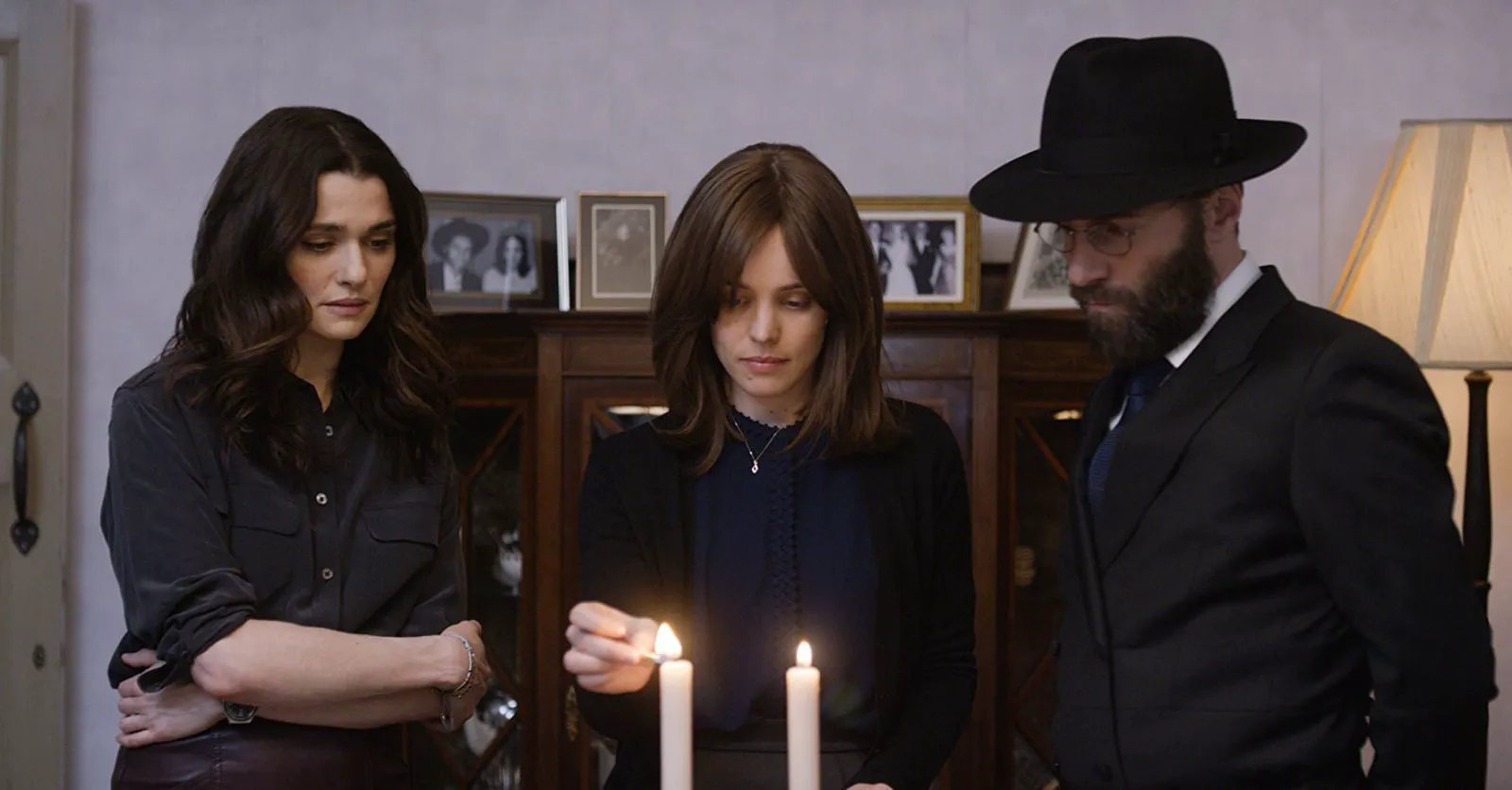Disobedience

Plot
Ronit Krushka, a successful photographer in New York, stands outside her childhood home in London, returning to the Orthodox Jewish community that expelled her decades ago for being a 'bad influencer.' The visit is bittersweet, as she has come to pay her respects to the father who had played a pivotal role in her life, but her actions were deemed sinful by the community. The pain of leaving behind the only life she had ever known is palpable. Growing up in a tight-knit community where conformity is the guiding principle, Ronit's innocent and ambiguous attraction to her childhood friend, Esti, was perceived as taboo and eventually led to her exile. The community placed Esti under close scrutiny as well, and as the years went by, the intense emotional bond between Ronit and Esti gradually transformed into an unrequited passion. As a result, Ronit has spent years honing her art, avoiding the emotional turmoil and painful memories that linger from her childhood. Her return to London is precipitated by the death of her father, and the desire to reconnect with her heritage. She had always cherished the intellectual and artistic sides of her upbringing, allowing it to fuel her creative pursuits, but the memories of her fractured family, who refused to accept her true nature, have lingered. Upon arriving at her ancestral home, Ronit meets her cousin, Dovid's wife, Esti, the person she left behind. The chance encounter, happening decades after their relationship was cut short, reignites a spark between them and fills Ronit with both trepidation and optimism. The reunion marks a pivotal moment in their lives, forcing Esti and Ronit to confront the consequences of their forbidden love, and the enduring trauma that they experienced at the hands of the very community they once called home. As Esti reminisces about the memories that they shared in the past, the story expands on the community's strict rules and expectations. People are stuck in their narrow-minded values, consistently labeling any form of deviation as a 'sin.' The Orthodox community seeks perfection; the line between acceptable behavior and the 'right path' is perilously thin. When confronted by this strict social hierarchy, Esti, the seemingly conventional wife, now appears to be at a crossroads. Esti grapples with the complicated nature of her marriage, an external marriage that leaves her lacking inner fulfillment. Feeling stifled and ignored, the void left by an emotional disconnect has only strengthened her love for Ronit. It is in these quiet moments, filled with contemplation and introspection, that Esti sees the possibilities for change and freedom that might reconcile her body and heart with her faith. Ronit and Esti cautiously start rekindling their passion, but their tender reunions occur secretly. The tension between love and societal expectation is palpable. With her daughter growing up and becoming increasingly inquisitive, Esti finds herself caught in a web of family pressures and secrets. This predicament forces her to evaluate her choices and decide if conforming to the expectations of her family will lead her to a more fulfilling life. As tensions escalate, they will be faced with the consequence of their love for one another and the probability of a painful divorce. But without Esti's voice that holds back her intense emotions through love letters, Ronit will not be able to get a sense of Esti's response to her. In the silence of Esti's last letter to Ronit, Esti appears to be searching desperately for the perfect moment to seek out Ronit, yearning to be enveloped in her love again, beyond the heavy expectations of the community. Esti sets out to reach Ronit, motivated by a sudden resolve to protect herself and to ultimately grow up to be the individual she wishes to be. Ultimately, the movie Disobedience presents itself as a deeply personal and introspective narrative, touching upon broad questions about human identity, faith, and sexuality.
Reviews
Piper
To turn a lesbian film into a propaganda piece for Judaism must be a cinematic first. While the audience around me was in tears, I thought they were just crying from how awful it was.
Edward
Having learned for the first time that Jewish women wear wigs.
Eric
I was fortunate enough to see this film at the Toronto International Film Festival. The performances of both Rachels were absolutely explosive. The repression and release of desire, the torment of making choices—it's easily one of the best LGBTQ+ films I've seen this year. The oppressive yet devout atmosphere of the Jewish community is portrayed masterfully.
Saige
It's about time lesbian-themed films were made like this. All the admiration, infatuation, lust, and heart-fluttering sweetness between the two female protagonists are built upon their profoundly independent spirits. Leaving signifies independence, and staying does too. Even the final letting go is an act of independence—unconventionally so, and shining with the light of idealistic love.
Emersyn
Whether it's a same-sex or heterosexual relationship, the most crucial thing is still good looks. I think I've finally figured it out: attractiveness is really decisive.
Recommendations





